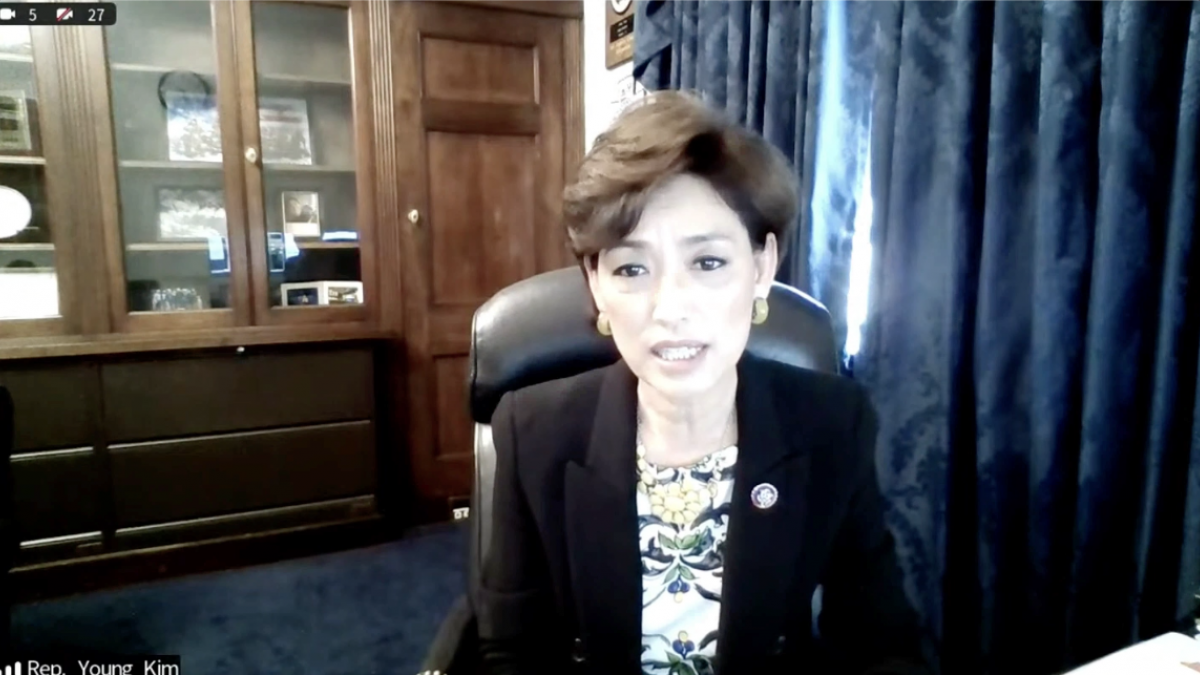WASHINGTON, DC – U.S. Representative Young Kim (CA-39) spoke during the House Transportation and Infrastructure Committee Member Day in support of a bipartisan bill to provide much-needed improvements to roads, highways, bridges and ports in California’s 39th District and across Southern California. In particular, Rep. Kim urged for federal funding for the 57/60 Confluence project, the worst traffic bottleneck in the state and sixth worst in the nation.
Watch Rep. Kim’s remarks here and read her remarks as prepared below.
Thank you, Chairman DeFazio and Ranking Member Graves, for convening this important Member Day to hear about our priorities this Congress.
Now more than ever, is very important that any infrastructure legislation that is considered this Congress has input from both sides of the aisle.
Only together—in a bipartisan way—can our country address some of the most pressing issues impacting the long-term sustainability of our infrastructure system.
By reforming our user fee system and incentivizing public-private partnerships, we could find common ground to address the associated taxpayer costs of an infrastructure package without having to saddle our future generations with debt or hamper our economic recovery from the COVID-19 crisis with tax increases.
There is wide consensus from both parties that we must address the broad deficiencies of our ports, highways, bridges, and roads – but any infrastructure action by Congress must be targeted and effective in addressing our competitiveness abroad.
For example, in my district the growth in global trade and local socio-economic changes in Southern California have caused California State Routes 57 and 60 to become two of the most heavily traveled freight highway corridors in the country.
Unfortunately, the American Transportation Research Institute has ranked the 57/60 Confluence as the worst truck bottleneck in California and one of the worst in the U.S.
Movement of goods from the San Pedro Bay Ports to points beyond Los Angeles County and to the major interstates of I-10, I-15, and I-40 often involves a truck trip on the Confluence. Nearly 40 percent of the nation’s containerized imports pass through the San Pedro Bay Ports.
9 percent of trucks passing through the 57/60 Confluence originate from the San Pedro Bay Ports.
Approximately 75 percent of these imports are destined for final consumption outside the region. Trucking delays originating at the Confluence ripple across the state, causing economic disruptions on industries beyond the corridor.
The COVID-19 pandemic has highlighted the importance of investing in our supply chains and logistics networks to efficiently provide food and medical supplies.
Legislation and efforts to improve our freight highways will support export-import-dependent industries and the creation of jobs throughout the United States.
I urge the Committee to work with me to strengthen the National Freight Highway System to improve the movement of goods and people through the 57/60 Confluence, which serves as a vital freight highway connection linking Southern California ports and manufacturing facilities that drive the regional, state, and national economy.
Thank you again for allowing me to testify today and for your leadership to improve our nation’s competitiveness and infrastructure.
I look forward to working with this Committee in the 117th Congress.




